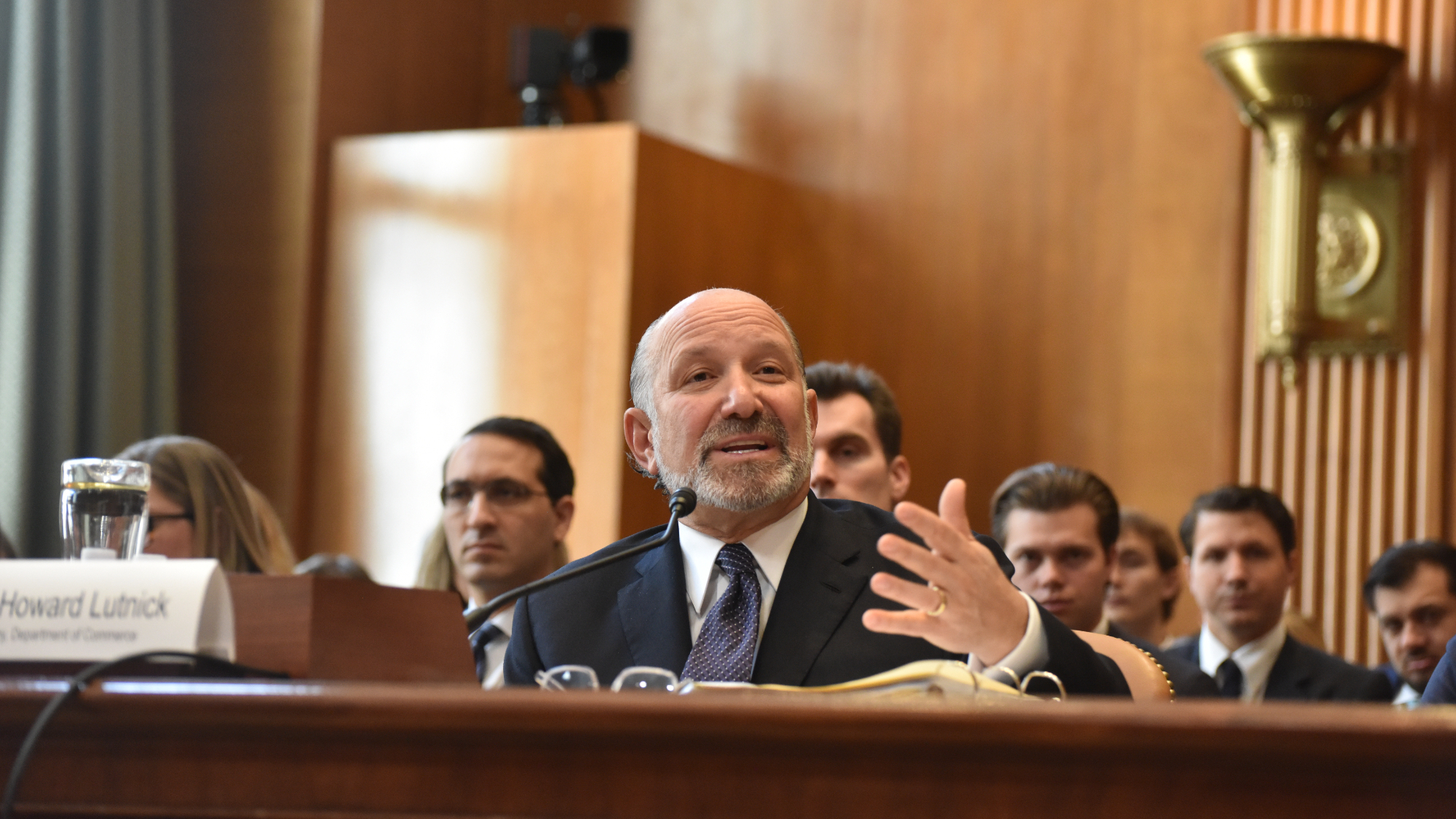Trump admin renegotiating Chips Act contracts, needles China over lowly advanced chip output
"Are we renegotiating? Absolutely..."

U.S. Commerce Secretary Howard Lutnick told the Senate Appropriations Committee that the White House is renegotiating with CHIPS Act recipients, hoping to push companies receiving the subsidies to pour more money into the American semiconductor projects. Taiwan Semiconductor Manufacturing Company (TSMC), which received $6.6 billion in grants from the U.S. government, set the precedent by announcing an extra $100 billion investment on top of its initial $65 billion commitment, and the White House seemingly wants other companies to follow suit, reports Bloomberg.
“Are we renegotiating? Absolutely, for the benefit of the American taxpayer, for sure. We’re getting more value for the same dollars,” Lutnick told the Senate committee. He also alluded that companies that refuse to play ball may not receive their payouts. “You will see that all the deals are getting better, and the only deals that are not getting done are deals that should have never been done in the first place.”
President Trump was allegedly against the CHIPS Act even during the campaign period, which was the Biden administration’s flagship project. When he addressed the U.S. Congress for the first time in his second term, he called it “a horrible, horrible thing” and even asked the representatives to “get rid of the CHIPS Act.” However, the legislators are hesitant to revoke the law, which received bipartisan support and brings jobs to various states and congressional districts. So, instead of killing the act, which could dramatically shrink U.S. chip market share, it seems that Washington is instead strong-arming recipients to invest more for every dollar it will receive.
Lutnick also touched on the effectiveness of the U.S.’s bans on China during the session. He said that China cannot produce the AI chips in massive quantities similar to what TSMC does for Nvidia. According to his estimates, the country could at most push out 200,000 of these advanced semiconductors required by data centers and the latest smartphones — a fraction of the projected 2 million chips that Nvidia should have delivered last year. When coupled with Washington’s export controls, China would have trouble satisfying the massive demand of Chinese consumers and tech companies, at least in the short term.
Follow Tom's Hardware on Google News to get our up-to-date news, analysis, and reviews in your feeds. Make sure to click the Follow button.
Get Tom's Hardware's best news and in-depth reviews, straight to your inbox.

Jowi Morales is a tech enthusiast with years of experience working in the industry. He’s been writing with several tech publications since 2021, where he’s been interested in tech hardware and consumer electronics.
-
ezst036 Everybody was desperate to get government involvement into the business of chip making.Reply
Now everybody is upset that government is involved in the business of chip making. Hold on now. This whole operation was your idea. You don't get to act all indignant now, that's not how this works.
Meanwhile the lobbyists are laughing at us all the way to the bank. It doesn't matter what we all have to suffer through in this process, the lobbyists got their bank already and aren't affected anymore until the next payola is ready to go and they can get theirs once more. Onward with the lobbyist gravy train.
Choo choo! -
blppt Reply
That's not what is going on here though. What they are doing is threatening things can never be---significant chip manufacturing on shore at a reasonably higher digestible cost to the customer.ezst036 said:Everybody was desperate to get government involvement into the business of chip making.
And THAT only works if you are consistent with your fiscal plans---think about it---you are a major chip manufacturer who primarily makes chips overseas. The only way you would transition to a significant amount of onshore manufacturing here is if you have a solid glimpse of what is going to happen 4-5 years down the road. Constant on/off tariff threats and implementation is chaos, and nobody is going to plan to build major plants here based on a whim---it takes years to build and get up to speed.
Unless you are SURE these tariffs are permanent and it makes fiscal sense to onshore manufacturing in the US, nobody is going to build here that wasn't already planning to do so.
The plants you are seeing now were approved and planned for in the first Trump admin and Biden admin. Heck, some even as far back as Obama. -
jp7189 Reply
The soap opera that's hand out to us via the mainstream media might not accurately reflect what's said in more private meetings between the people making decisions.blppt said:That's not what is going on here though. What they are doing is threatening things can never be---significant chip manufacturing on shore at a reasonably higher digestible cost to the customer.
And THAT only works if you are consistent with your fiscal plans---think about it---you are a major chip manufacturer who primarily makes chips overseas. The only way you would transition to a significant amount of onshore manufacturing here is if you have a solid glimpse of what is going to happen 4-5 years down the road. Constant on/off tariff threats and implementation is chaos, and nobody is going to plan to build major plants here based on a whim---it takes years to build and get up to speed.
Unless you are SURE these tariffs are permanent and it makes fiscal sense to onshore manufacturing in the US, nobody is going to build here that wasn't already planning to do so.
The plants you are seeing now were approved and planned for in the first Trump admin and Biden admin. Heck, some even as far back as Obama.
I say that becuase, despite all the crazy we hear, TSMC seems to be building out that fab in AZ at record pace.